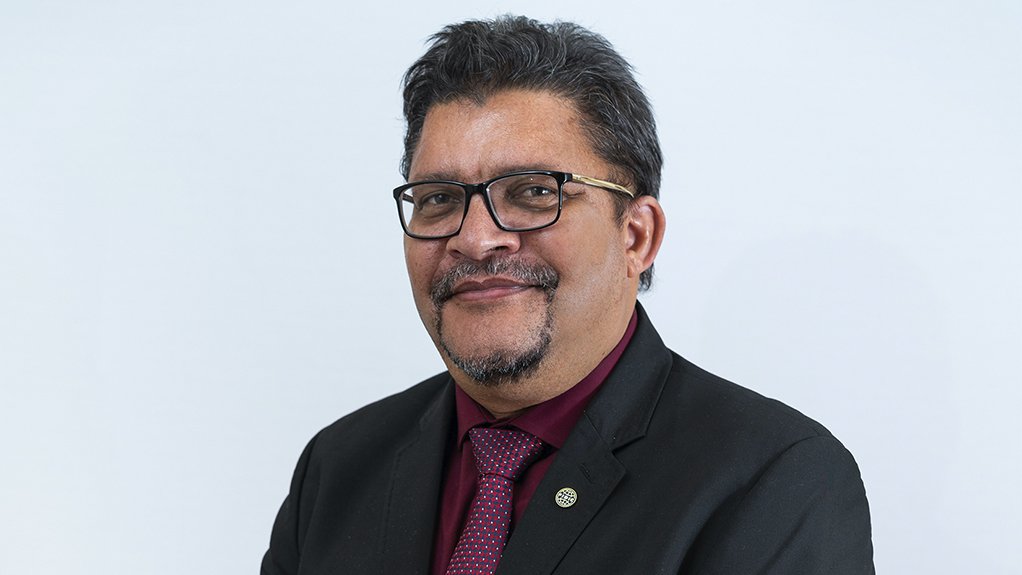Consulting engineers play an important role throughout the mining process, from the exploration phase to the construction and operation of the mine, says Consulting Engineers South Africa CEO Christopher Campbell.
Mining has historically been the anchor of the country’s economy, making a vibrant mining sector, particularly in terms of exploration activity, very important for future growth, he adds.
Developing a mining project pipeline, by finding economical mineral deposits that can be exploited for future benefits, feeds the construction of infrastructure required to progress mining development, all of which requires the expertise of consulting engineers.
For example, the project developer or mine owner of an opencast mine would need to find a host of specialist mining and rock engineers to ensure that mining activities are done efficiently and effectively. Often they may have a few in-house specialists, however, many of these specialists are invariably employed at consulting engineering firms, says Campbell.
The owner also has to consider that mines involve a 24/7/365 operation unless a shutdown is imposed by regulators for health and safety reasons or operations are conducted on a care-and-maintenance basis, owing to an unfavourable price environment, where costs may exceed income by substantial margins.
“This need for continuous operation requires an efficient mining ecosystem that encompasses core mining infrastructure and supporting infrastructure.”
The core infrastructure is situated in and around the mine, which includes the construction of access and haul roads as well as structures required for mining offices and other operations, all of which are designed by consulting engineers.
These haul roads have to allow for large loads, whilst remaining stable during transportation for trucks traversing the bottom of an openpit and travelling to the top, without slope or other failures.
“The mine may then need a crushing plant for materials to produce the required size for processing or to separate unwanted material from viable ore, which also requires engineering input.”
Campbell adds that crushing-plant engineers, as well as mechanical, electrical and process engineers, are required as part of the broader consulting engineers’ scope to identify an appropriate plant design to produce the desired product, specifically in terms of producing the correct grade or end-product, where such in-house resources may be in short supply.
Consulting engineers, therefore, play a major role in ensuring the entire ecosystem functions at peak performance, he states.
Moreover, it is essential to effectively and efficiently integrate all equipment and processes in the mining ecosystem and this requires knowledge and expertise, for which mining, structural, mechanical and electrical engineers are needed to work collaboratively to ensure that the designs and equipment are functional and fit for purpose, explains Campbell.
“The mining ecosystem relies on designs and innovations by a multidisciplinary team within the broader consulting engineering environment to address aspects of environmental compliance, energy supply, water and sanitation as well as recycling.”
Environmental Role
Mines also have environmental responsibilities that have increased over time, and
key aspect in this regard are the health and safety related aspects and liabilities that could emanate from neglecting historical tailings dams and mine dumps.
“In many instances, new mines generally extract the material before sorting and processing it,” says Campbell, adding that unwanted or waste material typically ends up in such dams and dumps.
“In the past few years, with improved technology, we have seen some of these being reprocessed to recover ore that would have not been recoverable 20 years ago,” he adds.
“The tailings dam is designed by specialist engineers with knowledge about geotechnical engineering, water and waste management.”
If it is not designed by a specialist engineer, there are various consequences. “There would certainly be a significant health and safety risk should one not use professional and experienced practitioners. A failed slimes dam wall could have catastrophic consequences to communities located in the path of the flow of materials from such a dam as was the case in Merriespruit in South Africa back in 1994,” Campbell stresses.
He says that mines, as energy-intensive operations that will increasingly rely on sustainable sources of energy, will still rely on electrical supply from State-owned power utility Eskom and cannot afford to let operations be halted.
Many mines have started developing their own sources of renewable energy to mitigate against the risk of an over-reliance on power from Eskom. It helps that government has allowed for as much as 100 MW of self-generation as this will enable mining houses to be self-sustaining, whilst also being able to feed into the national energy grid where Eskom may be short of the required capacity, he declares.
“When involving consulting engineering companies in the process, you are also creating the opportunity for a variety of built environment professionals, general and specialist service providers and suppliers that would be related to the building, supply and installation of the various infrastructure elements, thereby contributing to a mining ecosystem that functions sustainably, efficiently and effectively,” Campbell concludes.
Edited by: Nadine James
Features Deputy Editor
EMAIL THIS ARTICLE SAVE THIS ARTICLE
ARTICLE ENQUIRY
To subscribe email subscriptions@creamermedia.co.za or click here
To advertise email advertising@creamermedia.co.za or click here













